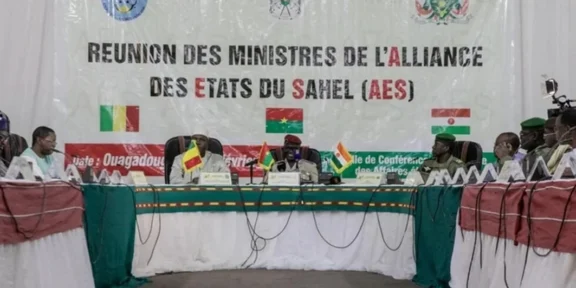On September 15, 2024, the Sahel States Alliance (AES), formed by the leaders of Mali, Niger, and Burkina Faso, announced the imminent launch of a common biometric passport. This initiative, marking the first anniversary of the creation of the AES, symbolizes a key step in regional cooperation between these three Sahelian countries, united in their fight against insecurity and their pursuit of political independence.
In a televised address, Colonel Assimi Goïta, head of Mali’s transitional government and current president of the AES, stated that this passport would soon be in circulation to facilitate citizens’ mobility and harmonize travel documents within the alliance. This project is part of a broader strategy to improve transport, communication, and technology infrastructures among these three nations.
The introduction of this common passport comes at a time when AES countries face transnational threats such as terrorism, arms smuggling, and drug trafficking—scourges that have destabilized the region for several years.
The AES passport could play a crucial role in coordinating the security efforts of the three countries. It will ease the management of cross-border movements and enable better tracking of individuals traveling through the region, thereby helping to strengthen border security. Moreover, this initiative is seen as a catalyst for boosting economic integration between Mali, Niger, and Burkina Faso, three countries whose economies heavily rely on agriculture and raw materials.
On the political front, the passport is also a strong symbol of the AES member countries’ desire to break free from the influence of Western powers, notably France, and to engage in closer cooperation with partners such as Russia, China, and others.
In July 2024, the three military leaders solidified their alliance by creating a confederation of Sahel States, uniting nearly 72 million people under one banner. This confederation, led by Mali for the first year, has already recorded successes in the fight against insurgents, according to Goïta, who highlighted during his speech the “significant victories” achieved on the ground.
As the AES celebrates its first anniversary, the launch of this common passport appears to be a decisive step towards greater regional integration and independence. By strengthening cooperation between Mali, Niger, and Burkina Faso, this alliance seems determined to tackle the security, economic, and political challenges facing the region, while affirming its autonomy in the face of foreign powers.






![[Tribune] Tunisie : le spectre d’un gouvernement des juges (image d'illustration). © Hassene Dridi/AP/SIPA](https://afriquemedia.tv/wp-content/uploads/2020/11/964461e18e0c6d415a4e6793fc38b836-576x288.jpg)




